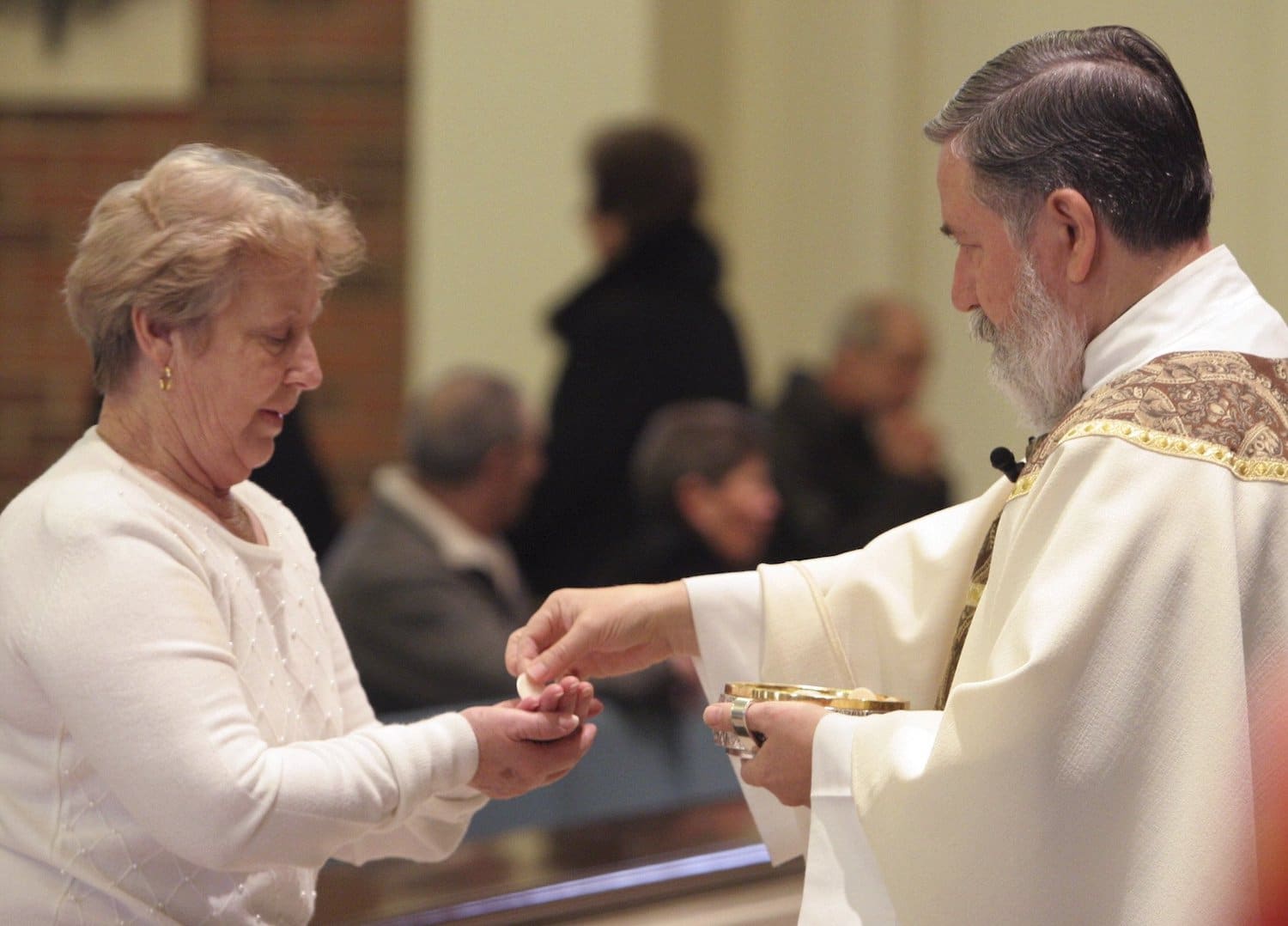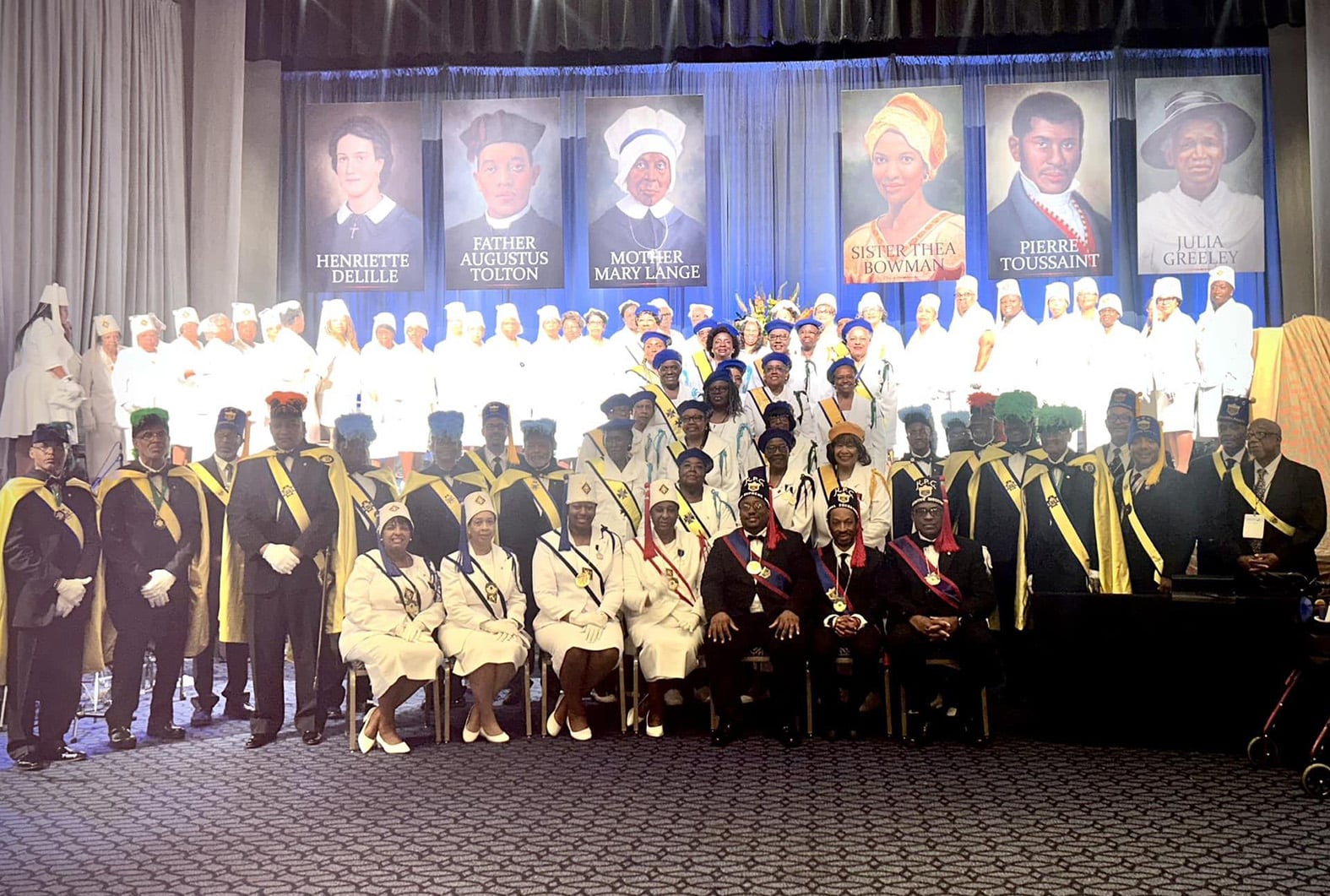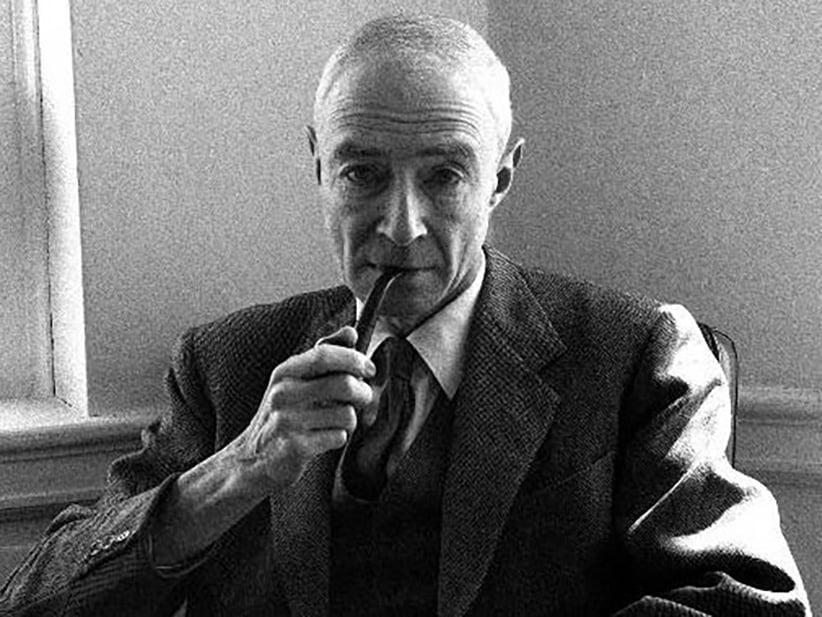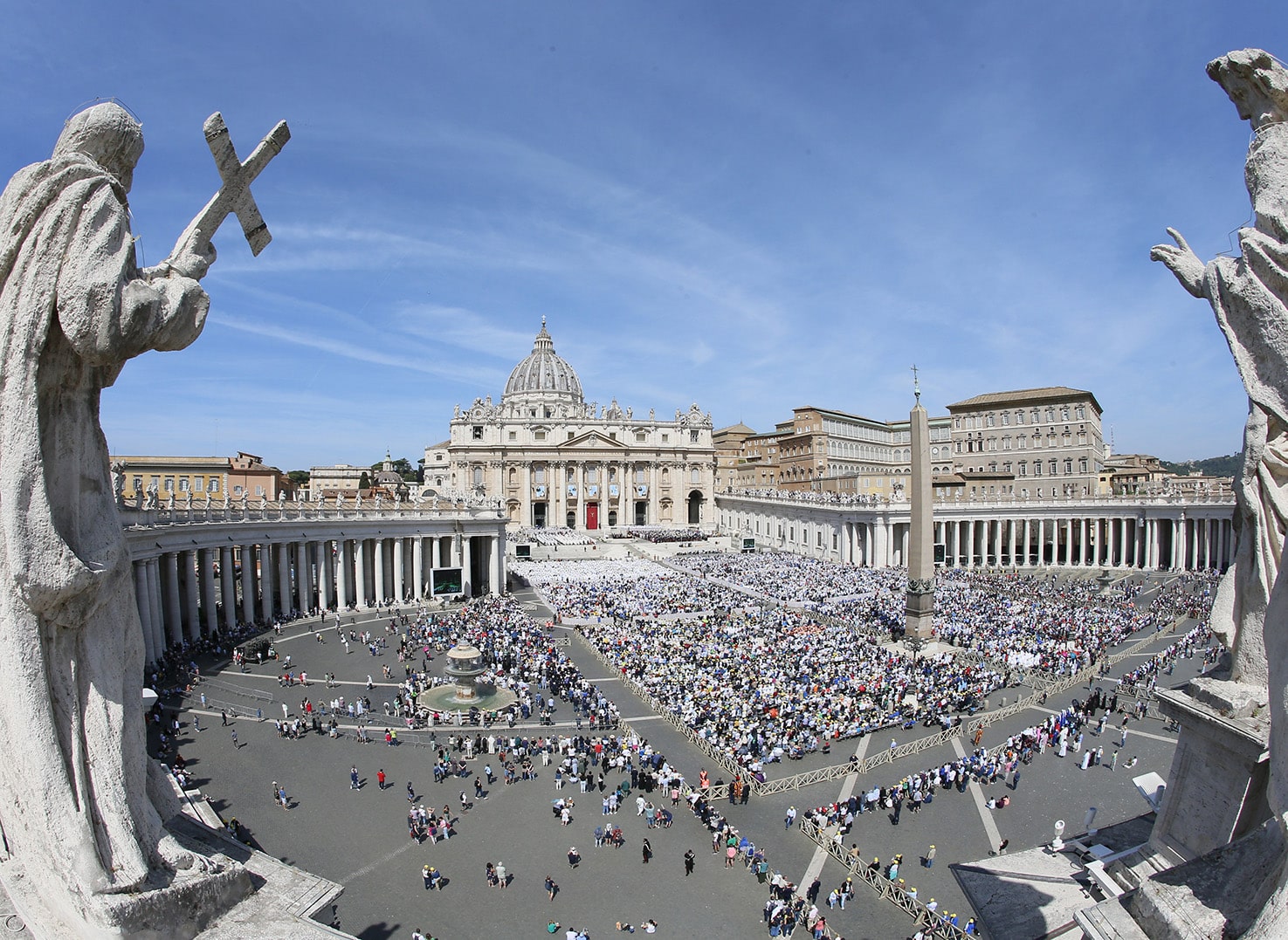When we speak of the Real Presence of Christ in the Eucharist, we mean, among other things, that his presence in the tabernacle, on the altar after the consecration, in the hands of the priest as he gives us Communion, in our mouths after we have received his body and blood, in our stomachs after we have consumed him, all under the forms of bread and wine, does not depend in any way on our belief that he is truly present or our ability to perceive or to understand the reality of his presence.
And yet our perception, and our understanding, and our intentions in “eating Christ in Communion” (as the Catholic novelist Walker Percy put it in his 1971 masterpiece “Love in the Ruins: The Adventures of a Bad Catholic at a Time Near the End of the World”) are in fact relevant to our experience of the Real Presence, and not just because, as St. Paul warns us in 1 Corinthians 11:27-29, “whoever eats the bread or drinks the cup of the Lord unworthily will have to answer for the body and blood of the Lord. … For anyone who eats and drinks without discerning the body, eats and drinks judgment on himself.” The opposite is also true: The better disposed we are when we receive the body of Christ, the more we cooperate in the graces offered through the sacrament, and the more the sacrament (in the words of the Catechism of the Catholic Church, No. 1392) “preserves, increases, and renews the life of grace received at Baptism.”
When we think of preparing ourselves for Mass and especially for Communion, our primary focus is often on two things: examining our conscience to determine if we are worthy of receiving Christ and preparing ourselves to hear the words of sacred Scripture. And both are important, especially the former, in the light of the words of St. Paul. But St. Paul’s emphasis on “discerning the body” points to the role that our imaginative perception of the underlying reality of the sacrament plays in preparing ourselves (as the priest says at the beginning of every Mass) “to celebrate the sacred mysteries.” And disposing of our imaginations to perceive the reality of Christ’s sacrifice made present for us once again, here and now, in the sacrament of the altar, takes more than reading through the Scripture of the day once before Mass begins, and even more than performing a thorough examination of conscience.
This is where everything I have discussed in this space over the last several months comes into play: deliberately recalling our baptism as we enter the church and make the sign of the cross with holy water, remembering that it signifies not simply our initiation into membership in the Body of Christ but also our participation in his death and resurrection; genuflecting not merely as a matter of course but as a conscious recognition that, even before the Mass itself begins, we are in the presence of Christ — body, blood, soul and divinity — waiting there in the tabernacle for us; actively recalling that the altar we see in front of us will become, in a few short moments, the sacred ground of Mount Calvary, on which the sacrifice of Christ on the cross will be made present for us once more; searching not just with the eyes in our head but with the yearning of our heart the Eucharistic species, the bread and the wine, until we can perceive beneath their outward forms the body broken on the cross and the blood shed for us and for many, for the forgiveness of sins.
After speaking of the one who “eats and drinks judgment on himself” because he does not “[discern] the body,” St. Paul says something that strikes the modern ear as literally incredible, as something we find hard to believe: “That is why many among you are ill and infirm, and a considerable number are dying” (1 Cor 11:30). “Unless you eat the flesh of the Son of Man and drink his blood, you do not have life within you” (Jn 6:53); and yet, to the extent that we eat and drink “without discerning the body,” we remain in a state of spiritual illness and infirmity. Christ’s Real Presence, the continuation of his sacrifice on the cross throughout the rest of time, is enough, and more than enough, to effect our salvation, if only we actively discern his presence and unite ourselves to his sacrifice.







